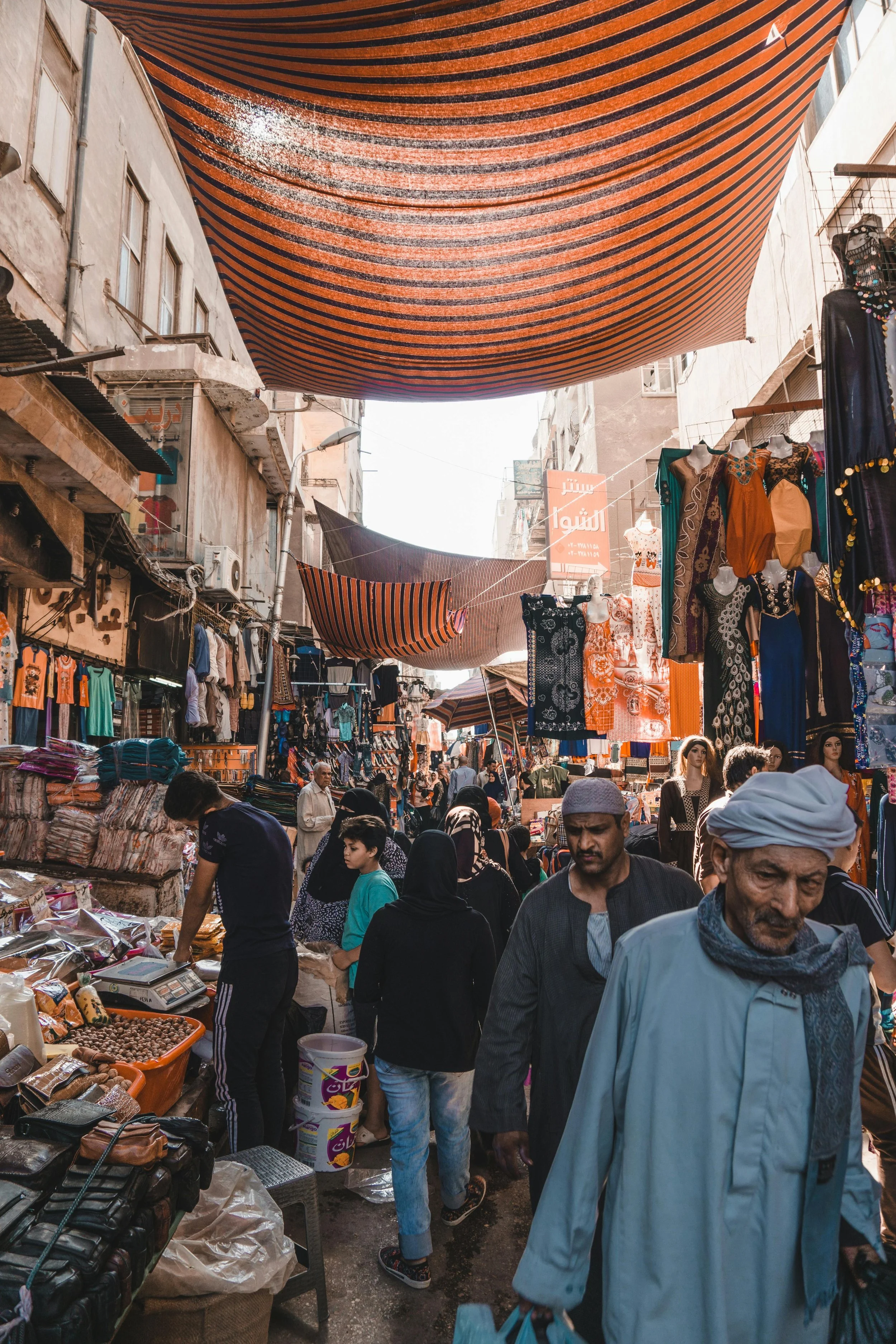How Value Chain Gaps Limit Fashion Scalability in Africa
African countries produce roughly 6% of the world’s cotton, yet local apparel producers source more than 90% of their yarn and fabric from outside the continent. This reliance on imports and lack of local value chains, combined with infrastructural barriers, drives up production costs and limits the scaling of African fashion. With the expiration of AGOA, the need to strengthen local and regional value chains has become even more urgent. Read this piece to explore the key value chain gaps limiting Africa’s fashion industry.
Why East Africa’s Stadium Boom Needs a Grassroots Engine
It’s not just the fashion industry that needs localized investment—sports do too, including Africa’s most popular game, football. East Africa is gearing up for AFCON 2027, with Kenya, Uganda, and Tanzania investing in major stadium projects. The real impact, however, will come when these venues are paired with year-round grassroots programs. Read more on how youth leagues, coach education, and scouting can turn “concrete” into talent and packed stands.
How Data Silos and Rivalries Squander Livelihood Opportunities in African Settlements
Africa shoulders the world's largest displacement burden, hosting 45.7 million forcibly displaced persons amid surging conflicts in Sudan, the Democratic Republic of the Congo, and Somalia. Yet, competitive funding models, conflicting development mandates and fragmented data sharing inflate program costs by 20-30%, duplicate efforts, and lock communities into dependency, stifling self-reliant economic pathways.
Inclusive E-commerce Isn’t Just a Social Good - It’s a Smart Growth Strategy
Emerging economies, particularly in Africa, face a $1.3 trillion annual development financing gap, with rising debt service obligations forcing governments to prioritize creditors over citizens. This unsustainable system has perpetuated cycles of dependency and underdevelopment. The creation of the Confederal Bank for Investment and Development (BCID) by the Sahel nations presents a transformative alternative. Funded by tax revenue, BCID offers long-term, counter-cyclical investments that support infrastructure and economic stability. By mobilizing dormant capital and de-risking private sector involvement, BCID can reshape development finance in the Sahel and beyond, breaking the chains of financial dependency and fostering sustainable growth.
Why State Development Banks Can Drive Economic Transformation
Emerging economies, particularly in Africa, face a $1.3 trillion annual development financing gap, with rising debt service obligations forcing governments to prioritize creditors over citizens. This unsustainable system has perpetuated cycles of dependency and underdevelopment. The creation of the Confederal Bank for Investment and Development (BCID) by the Sahel nations presents a transformative alternative. Funded by tax revenue, BCID offers long-term, counter-cyclical investments that support infrastructure and economic stability. By mobilizing dormant capital and de-risking private sector involvement, BCID can reshape development finance in the Sahel and beyond, breaking the chains of financial dependency and fostering sustainable growth.
The African Credit Rating Agency: What can African Nations Expect?
AfCRA, launching next month, introduces an African lens to credit ratings using region-specific data and socioeconomic indicators. This initiative could unlock up to $15.5 billion, tackle bias against African economies, reduce borrowing costs, and support sectors like infrastructure and healthcare. Read more to discover how AfCRA will reshape Africa’s financial sovereignty and the key factors determining its success.
The Silent Climate Hazard: How Data-Driven Policy Can Reverse Africa’s Air Quality Decline
Air pollution is one of Africa’s deadliest and most under-recognized crises—costing countries like Ghana $1.6 billion annually, nearly 1% of GDP, in lost productivity and pollution-related illness. Yet without robust monitoring, the scale of this emergency remains dangerously invisible. This piece argues that tackling the crisis requires more than cleaner fuels—it demands data-driven systems that can track pollution, guide interventions, and unlock financing. Drawing on lessons from Algeria, Tunisia, and Mauritius, it shows how countries investing in real-time monitoring and transparent reporting are not only improving air quality—but reshaping their development trajectories. Read more here.
How Port Integration Can Bridge the Digital Divide at the Dock
African ports are critical to the continent’s economy, handling diverse cargo under different management systems. However, this diversity makes it hard to digitize port operations. While ports like Berbera show the potential for targeted digital upgrades, Africa still lacks a fully integrated port model. In contrast, Japan’s Yokohama port shows how specialization and unified governance simplify digitalization. African ports must invest in shared digital platforms and government-backed policies to compete globally.
Rebalancing Africa’s Oil Supply Chain for Sustainability and Sovereignty
As the call for localized solutions grows louder, it is critical for Africa to fully leverage its resources. Despite being a major crude oil producer, Africa’s oil imports remain high. This external reliance drains foreign reserves and intensifies carbon emissions with the long winded logistics. As the global push for decarbonization accelerates, Botho’s Analyst, Gerald Kilimo, sheds light on how Africa can reshape its energy landscape and capture the full value of its resources. Read more here.
Why Africa’s Integration is Stuck in the Spaghetti Bowl?
Even as AfCFTA becomes more critical for building economic resilience amid rising trade wars and geopolitical uncertainty, Africa’s regional integration remains tangled in a "spaghetti bowl" of overlapping trade agreements. With countries juggling conflicting commitments across an average of eight trade blocs, the continent’s trade potential is stifled by fractured enforcement, selective compliance, and regulatory fragmentation. Can the AfCFTA overcome these structural challenges and deliver on its ambitious vision for unified continental trade?
The Nexus Between Logistical Infrastructure and Sovereignty - The Case of Djibouti
Ethiopia relies on the Port of Djibouti for over 95% of its imports and exports, generating more than $1 billion annually in port fees for Djibouti. This dependency supports roughly a quarter of Djibouti’s formal workforce and underpins its service-driven economy. As Djibouti cements its role as a key logistics hub in the region, its logistics infrastructure has become a cornerstone of its sovereign strength.
Explore how Djibouti’s geopolitical resilience is deeply tied to its position as a global logistics stronghold in Martin Nkonge’s analysis here.
What’s the Story Behind the Data? Reframing MEL as a Learning Tool
Are we measuring what really matters? Development projects pour billions into solving global challenges—but are they making a real difference? In Rethinking Monitoring and Evaluation in Development, Naam Chakravorty explores why learning must be embedded, not just reported. Read the full article to explore how MEL can move from compliance to impact.
Why Africa Needs a Centralized Sustainability Data Tracking System to Advance Climate Action
Africa stands at a pivotal moment in its climate journey, with bold commitments outlined in National Adaptation Plans (NAPs) and Nationally Determined Contributions (NDCs) to drive resilience and emissions reduction. Yet, these ambitious blueprints remain hindered by a fundamental challenge—the lack of a unified, continent-wide system to track, measure, and report climate progress. Without reliable data infrastructure, African nations struggle to secure climate finance, monitor adaptation efforts, and translate policies and plans into measurable impact. The result? Underfunded, underreported, and under-implemented climate actions that leave the continent vulnerable to escalating climate threats. To bridge this gap, Africa must invest in a pan-African sustainability data system that enhances transparency, strengthens institutional capacity, and unlocks the full potential of NAPs and NDCs. Without it, climate ambitions will remain just that—ambitions.
Why Africa's private sector must lead trade integration
The conventional approach positions African economic integration primarily as a political project requiring commercial participation. A more effective framework recognizes that integration represents a commercial opportunity requiring political facilitation. This recalibration places business imperatives at the center of implementation strategies while positioning governments as enablers rather than pilots.
The Role of Digitization in Transforming African Ports into Global Trade Hubs
African ports handle 90% of the continent’s trade, yet many remain inefficient due to outdated systems. While infrastructure investment is key, digitalization offers the greatest opportunity to transform African ports into globally competitive trade hubs. Research conducted by PwC reveals that a 25% improvement in port performance is likely to increase the GDP of a nation by 2%. Read this piece to explore how strategic digital investments can unlock Africa’s trade potential.
Bridging Tradition and Impact: The Evolution of High Net Worth Individual Philanthropy in Africa
As Africa confronts a shifting aid landscape, the mobilization of local resources and expertise has become an imperative in shaping its own development path. In this context, African philanthropists are uniquely positioned to transform how development is conceived, funded, and implemented. To better understand this potential, Botho Emerging Markets Group and the Amahoro Coalition conducted research examining how High Net Worth Individual (HNWI) philanthropy can evolve from traditional giving practices to become a cornerstone of sustainable, African-led development.
The King’s Gambit Part 2: Saudi-Africa Relations in the Green Transition Race
Saudi Arabia's energy diplomacy has historically revolved around its substantial oil reserves, granting it significant influence in global energy dynamics. However, in recent years, the Kingdom has focused on diversifying its economy, with an emphasis on entering the mineral resource market. Building domestic processing and industrial value chains is a core element of this broader economic strategy. As Global South nations increasingly aim to develop their processing capacities and downstream supply chains, Saudi Arabia finds itself at a critical juncture to enhance its strategic autonomy, particularly in sectors crucial to the green energy transition.
How a Trump Victory Could Pressure Gulf’s AI Diplomacy Amid US-China Tech War
The rapid evolution of artificial intelligence (AI) and the technological competition between the United States and China is increasingly shaping the geopolitical chessboard of the 21st century. For countries like Saudi Arabia and the UAE, AI diplomacy is emerging as a cornerstone of their foreign policy, enabling them to transition from oil-dependent economies to diversified, technology-driven global players. Yet, this shared ambition is also sparking regional competition between the two Gulf nations, as each seeks to establish itself as the dominant AI hub in the Middle East. Trump’s victory in the recent U.S. presidential elections portends a more protectionist foreign policy, which could further complicate this regional rivalry by prompting both nations to recalibrate their AI strategies in the face of intensified U.S.-China tech competition.
Bridging the Gap Between Potential and Practicality in Green Hydrogen
Green hydrogen, often called the fuel of the future, offers a zero-emission solution for decarbonizing hard-to-abate sectors and is becoming a cornerstone of global energy strategy. As the clean energy transition accelerates, regions rich in renewables—particularly the Gulf, Europe, and Africa—are competing to lead in green hydrogen production. This race underscores its transformative potential to diversify energy portfolios and cut emissions. However, turning this promise into reality requires overcoming challenges in cost, infrastructure, and market demand.





















